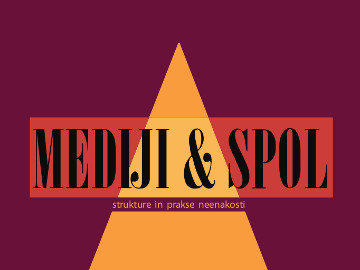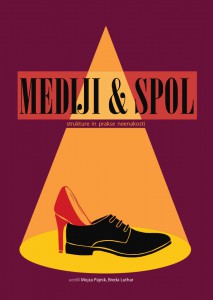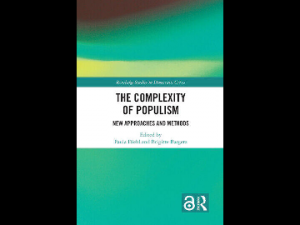Media and Gender: Structures and Practices of Inequality

Mediji in spol: stukture in prakse neekanosti (original title) | Media and Gender: Structures and Practices of Inequality
Eds. Mojca Pajnik, Breda Luthar, 2019, pp. 224, Ljubljana: Faculty of Social Sciences, University of Ljubljana (in Slovenian, with abstracts in English)
 The book explores why and how gender differentiation needs to be understood at the crossroads of class divides and the hierarchical gendered structures of the contemporary capitalist society, and how gender does not exist in isolation, but always coincides with class, ethnic, cultural structures. Foregrounded epistemologies are that of the feminist historical materialism that introduced patriarchy and engendered class into the analysis of social relations. The book is based on a multi-level analysis of television in Slovenia, which encompasses the analysis of the macrostructure of digital capitalism and media policy, the meso-organizational level of media institutions, and the micro ritual construction of journalistic conventions and their gender biases.
The book explores why and how gender differentiation needs to be understood at the crossroads of class divides and the hierarchical gendered structures of the contemporary capitalist society, and how gender does not exist in isolation, but always coincides with class, ethnic, cultural structures. Foregrounded epistemologies are that of the feminist historical materialism that introduced patriarchy and engendered class into the analysis of social relations. The book is based on a multi-level analysis of television in Slovenia, which encompasses the analysis of the macrostructure of digital capitalism and media policy, the meso-organizational level of media institutions, and the micro ritual construction of journalistic conventions and their gender biases.
“By examining the structures and practices of inequality in the dynamics of gender and the everyday of the media, the book analyses the often overlooked dimension of the multifaceted modern crisis of media and journalism. By critically discussing the production routines of journalistic editorial offices, the normalization of risky work relationships, conventions of media genres and the constructions of television audiences the authors reveal different but overlapping forms of (self)disciplining in the processes of gender differentiation in Slovenian central television stations. Providing an integrative theoretical approach and original empirical studies, the collection offers not only a prism to look beyond the self-evidentness of the relationship between the media and gender, but also a tool for breaking myths and transforming exclusionary social relations.”From the review of Assoc. Prof. Igor Vobič, Faculty of Social Sciences, University of Ljubljana
“The contributions in this book reflect the epistemological starting points that need to be highlighted if we want to develop a critical understanding of the social functioning of “patriarchal capitalism” in the conditions of corporate neoliberalism. The collection brings a fresh and in the international context an innovative conceptualization of gender and gender equality in the media. With rich empirical materials, the book will enable further comparative studies in the field of the former Yugoslavia, broader in the post-socialist region of an integrated Europe, and in the wider transnational framework of media research in neoliberal culture.”
From the review of Prof. Ksenija Vidmar Horvat, Faculty of Arts, University of Ljubljana
Mojca Pajnik, Breda Luthar The silencing of gender in the media
Majda Hrženjak Precarization in journalism: greedy institutions, entrepreneurial subjectivities and gender perspective
Mojca Pajnik Pride and prejudice of media routines: domesticated feminism, new sexism and television sex
Živa Humer, Mojca Frelih The journalistic profession, neoliberal labour market and parenting
Breda Luthar, Maruša Pušnik Infotainment and gender
Dejan Jontes Housewives, farmers and “simple” people: Constructing television audiences
Marko Ribać, Živa Humer Androcentrism and gender differentiation in the journalistic field: An ethnographic study of gender domination in three Slovenian TV stations
Brankica Petković, Sandra B. Hrvatin The lost emancipatory potential of media policy




